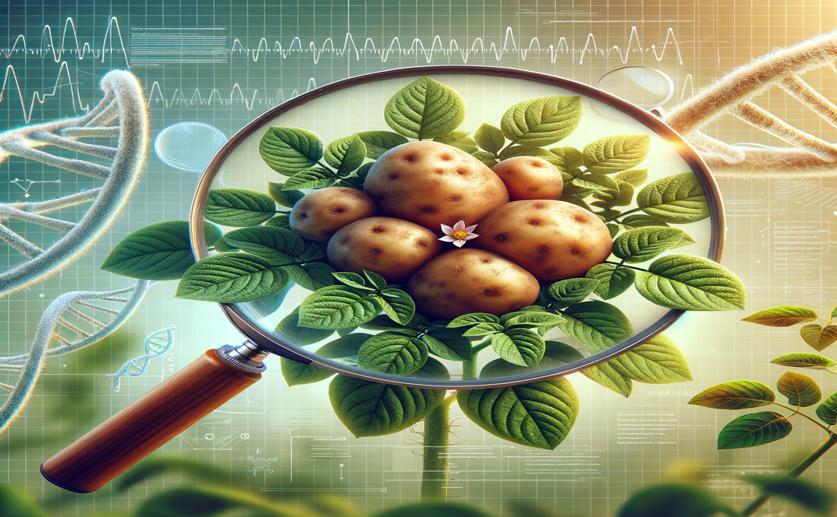
Discovering Potato Genes Linked to Boosted Pollen Production
Jenn Hoskins
14th March, 2024

Image Source: Natural Science News, 2024
Key Findings
- Researchers found key genetic areas affecting pollen production in potatoes
- These areas include two major and two minor genetic regions linked to pollen traits
- The discovery aids breeding by allowing selection of potatoes with desired genetics
AgricultureGeneticsPlant Science
References
Main Study
1) Identification of two mutant JASON-RELATED genes associated with unreduced pollen production in potato.
Published 12th March, 2024
https://doi.org/10.1007/s00122-024-04563-7
Related Studies
2) Genome evolution and diversity of wild and cultivated potatoes.
3) Gametes with the somatic chromosome number: mechanisms of their formation and role in the evolution of autopolyploid plants.
4) Phased, chromosome-scale genome assemblies of tetraploid potato reveal a complex genome, transcriptome, and predicted proteome landscape underpinning genetic diversity.



 8th March, 2024 | Greg Howard
8th March, 2024 | Greg Howard